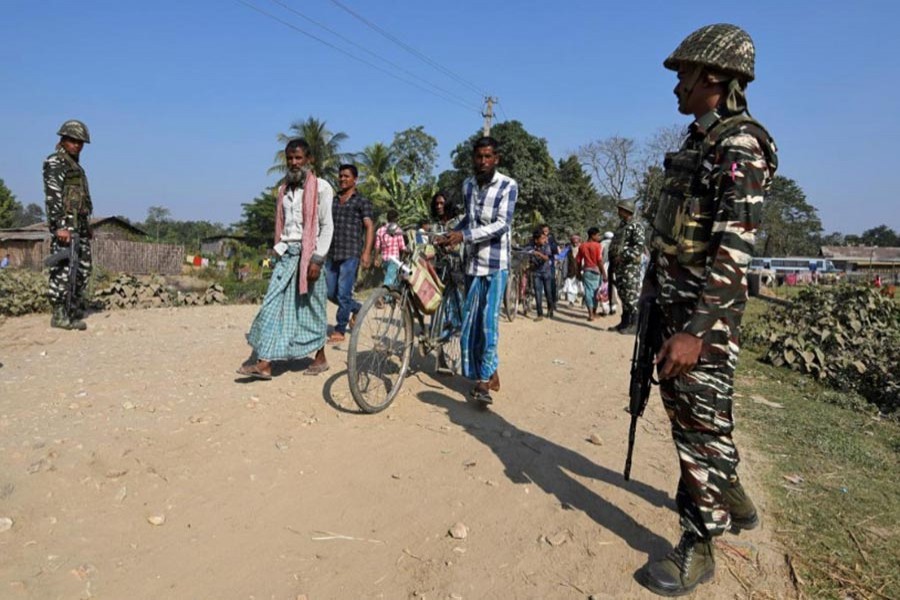India has mobilised around 60,000 police and paramilitary troops in a sensitive border state ahead of the publication of a list of its citizens.
The drive will be used to detect and deport illegal immigrants - mainly Muslims - from neighbouring Bangladesh.
Prime Minister Narendra Modi’s Hindu nationalist Bharatiya Janata Party (BJP) took power in the eastern state of Assam for the first time last year.
The BJP vowed to act against illegal Muslim residents who take away jobs from local Hindus.
On Sunday the state government will release a draft National Register of Citizens (NRC) after a census carried out for the first time since 1951.
The exercise could lead to communal tensions in Assam, which has the second highest percentage of Muslims of any Indian state.
Muslims leaders have called the NRC a tool to make them stateless, likening themselves to Myanmar's persecuted Rohingya minority.
“The NRC is being done to identify illegal Bangladeshis residing in Assam,” Himanta Biswa Sarma, Assam’s finance minister who is also in charge of the citizenship register, told Reuters.
“All those whose names do not figure in the NRC will have to be deported. We’re taking no chances and hence all security measures have been taken”, Assam’s finance minister added.
Sarma said Hindu Bangladeshis who faced persecution there would be given shelter in India, in line with federal policy.
Bangladesh’s Home Minister Asaduzzaman Khan said Dhaka had no knowledge of any plans to deport people. “We didn’t receive any information from the Indian government, neither formally nor informally,” he said.
To be recognised as Indian citizens, they must be able to produce documents proving that they or their family lived in the country before March 24, 1971.
“My grandparents and my parents were all born in India but today we are finding it difficult to provide documents to support our claims that we are Indians,” said Asiful Rahman, a teacher at an Islamic seminary in a Muslim-majority district of Assam.


